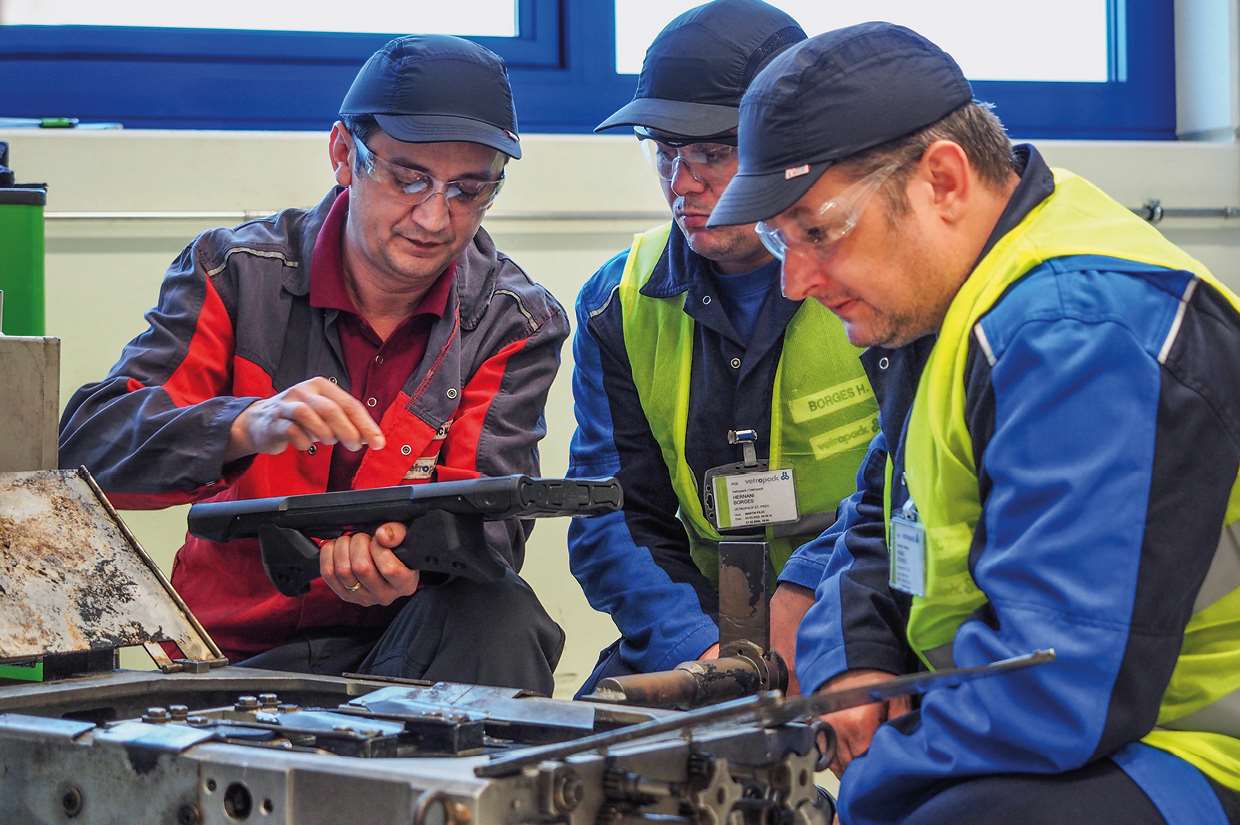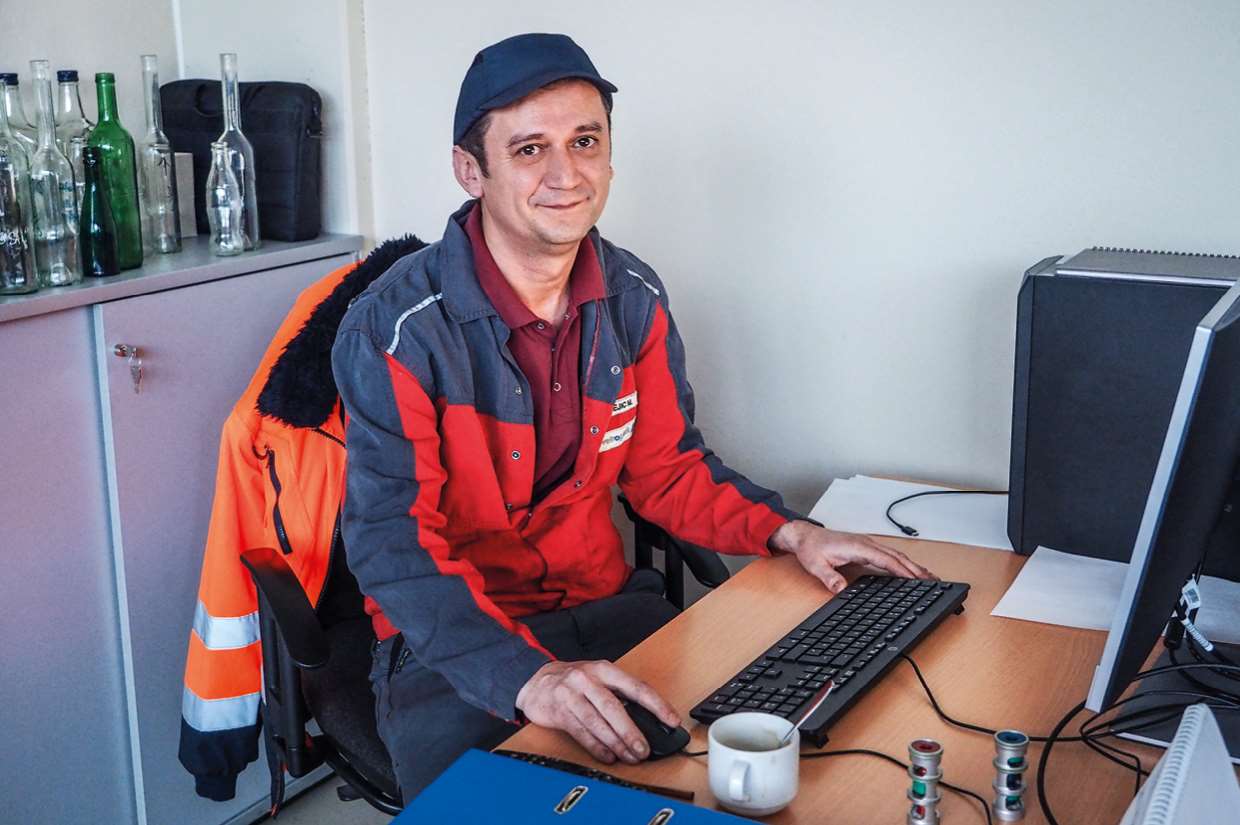- Interview CEO
- Vetropack Locations
- Market environment offering opportunities and challenges
- Business model
- Strategy 2030
- Management Structure
- Organisation
- Col2
- Material Topics and Performance Review
- Customers and suppliers
- Finances
- Innovation and intellectual property
- Production and products
- Employees
- Environment
- Col3
- New designs
- Financial Report
- Col1
- At a Glance
- Financial Report Vetropack Group
- Consolidated Balance Sheet
- Consolidated Income Statement
- Consolidated Cash Flow Statement
- Changes in Consolidated Shareholders’ Equity
- Consolidation Principles
- Valuation Principles
- Notes
- Ownership Structure
- Company Participations
- Report of the statutory auditor on the consolidated financial statements
- Five Year Overview
- Col2
- Financial Report Vetropack Holding Ltd
- Balance Sheet
- Income Statement
- Notes
- Board of Directors’ (BoD) Proposal for the Corporate Profit Appropriation
- Report of the statutory auditor on the financial statements
- Five Year Overview
- Corporate Governance
- Col1
- Introduction
- Board of Directors
- MB Members
- Remuneration and Additional Information
- Shareholders’ Participation Rights
- Auditors
- Information Policy
- Contact Address
- Remuneration Report
- Col1
- Introduction
- Principles of the Remuneration Scheme and its Components
- Organisation and Authorities for Determining Remuneration
- Description of the Remuneration Components
- Board of Director’s Remuneration
- Management Board’s Remuneration
- Comparison of Remuneration disbursed with the Remuneration approved by the 2020 and 2021 Annual General Assembly
- Shareholdings
- Report of the statutory auditor on the remuneration report
- Sustainability Report
- Col1
- Sustainability Report
- Customers and suppliers
- Finances
- Innovation and intellectual property
- Production and products
- Employees
- Environment
- Col2
Training
Group-wide training centre
The Vetropack Group training centre in the Austrian town of Pöchlarn entered its third year in 2020 with very positive results. The on-the-job training courses for production employees again met with great interest in the year under review. Glass-specific know-how, efficiency, quality and output took centre stage.

Before training kicked off in the newly set-up training centre in 2017, intensive preparations were made for the internal training of employees from all Vetropack plants – and they paid off. Group-wide training modules in the various process steps and procedures of glassmaking were developed for the in-depth training of glass specialists as well as those new to the profession, career changers and trainees.
Employees familiarise themselves with the glassmaking process and learn to set up and use the existing technology correctly. The focus is on on-the-job training. A total of four learning stations were built, on which the various production steps can be simulated. The participants can practise all the work stages at the hot end – this is the phase where the glass is moulded.

Interview with Martin Pejic, head of the Pöchlarn training centre
What is the main focus of the training?
Above all, the training is about consolidating knowledge of the production machines at the hot end of a glassworks. It is important that the participants are familiar with how all operating and control elements of these systems function in detail, while also understanding and learning to exploit the complex interaction between them. Currently, 15 different modules are being offered – from basic and safety training right up to very specific training for job modifications or dealing with feeder machines.
How exactly does the training work?
The training line is a fully operational production machine with four stations, where the various production processes such as blow-and-blow, pressblow, and narrow-neck pressblow for single-, double- and triple-gob production can be tested. The only restriction is that the machine operates without any glass.
The training generally lasts five days, although some specific training sessions can be for just one or two days. The practical training is the centrepiece, while the theoretical part of the training is kept as short as possible.
How are the numbers of participants developing?
Due to Corona, the number of training courses had to be reduced compared to the previous year. In 2020, we held a total of 21 courses with around 99 participants. The participants in the training come from all Vetropack Group production plants, with a focus on the hot end and the IS workshop. However, we also train technicians, electricians and technical customer service agents – not forgetting the glass technician trainees from the two Austrian plants at Pöchlarn and Kremsmünster.
Is the Vetropack training centre a model for success?
The feedback from participants has been only positive up to now. The high level of practical relevance and the major emphasis placed on work safety are appreciated. The training enables activities that wouldnʼt be feasible during ongoing operations.
As training managers, we have also found the experience very rewarding. To do our work well, there needs to be close cooperation across the board between the training team and the technical departments at the Vetropack plants. We always have to look ahead to see what technological developments are in the pipeline and how we can incorporate these elements into the training programme. We are very flexible about how we shape the content of individual modules. Iʼve never yet had two groups which have been the same. Each training course is tailored individually to the prior knowledge and specific needs of the participants, and this is one of the most important factors in its success.
This website uses cookies to ensure you get the best experience on our website.Privacy statement
- Sustainability Report
- Col1
- Col1
- Col1
- Col1
- Material Topics and Performance Review